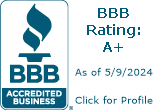Michigan Sales Tax Compliance

Michigan sales tax compliance is fairly easy to follow and understand. Michigan has a state-level sales tax rate of 6%. The state does not offer reduced rates, but there are exemptions available for businesses with the correct certificate of exemption. Some of these exempt businesses include churches, schools, wholesalers, resale retailers, government 501(c)3 and 501(c)4 organizations, and more. Outside of these types of companies, most businesses will collect and remit a 6% sales tax rate on sales.
Michigan Sales Tax
Michigan has three frequencies at which taxpayers file their returns. The three filing frequencies are monthly, quarterly, and annually. Your filing frequency will be determined by the Michigan Department of Treasury after registration. Michigan sales tax compliance requires taxpayers with monthly and quarterly tax returns to file by the 20th of the following reporting period, while taxpayers annual returns will always be due on the 28th of February. Michigan requires all taxpayers to file an annual return even if they are also filing monthly or quarterly. If the return due date falls on a weekend or national holiday, then the correct due date for your filings will get pushed back to the next business day.
Michigan does require that any taxpayer averaging $720,000 in sales tax annually submit accelerated payments. The accelerated payment is 75% of the lesser of the previous month's tax liability or the same period from last year's tax liability. Michigan also offers a total discount which is explained on page 2 of Michigan Sales Tax Return, and how the total discount is calculated depends on your filing frequency. Discounts apply only to 2/3 of the sales and use tax collected at a 6% rate. Usually, the total discount is $6 per month or $18 per quarter, but the discount amount does depend on when the taxpayer files for their returns and the amount of tax liability.
Monthly filer
· If the tax is less than $9, calculate the discount by multiplying the tax by 2/3
· If the tax is $9 to $1,200 and paid by the 12th, or $9 to $1800 and paid by the 20th, then enter $6
· If the tax is more than $1,800 and paid by the 20th, calculate discount using this formula: (Tax x .6667 x .005)
· The maximum discount is $15,000 for the tax period
Quarterly Filer
· If the tax is less than $27, calculate the discount by multiplying the tax by 2/3
· If the tax is $27 to $3,600 and paid by the 12th, or $27 to $5,400 and paid by the 20th, then enter $18
· If the tax is more than $3,600 and paid by the 12th, calculate discount using this formula: (Tax x .6667 x .0075)
· The maximum discount is $20,000 for the tax period
· If the tax is more than $5400 and paid by the 20th, calculate discount using this formula: (Tax x .6667 x .005)
· The maximum discount is $15,000 for the tax period
Accelerated Filer
· If the tax is paid by the 20th, calculate discount using this formula:
· Tax x .6667 x .005
· No maximum discount applies
The sales tax laws in Michigan are generally straightforward and uncomplicated, and the state does not have local taxing jurisdictions with varied rates. For the most part, businesses can expect to collect and remit a 6% sales tax rate on all of their sales. The most difficult part of Michigan sales tax compliance is most likely the total discount. Calculating it can be a bit confusing, but luckily, the total discount amount is automatically calculated when filing online.
If you are curious to learn more information about Michigan sales tax compliance, make sure to visit the Michigan sales tax website.
Michigan Sales Tax Compliance Services
Agile’s experienced sales tax consultants can help by completing your company’s ongoing compliance filings in the state of Michigan. In fact, we’ve offered an outsourcing solution for this process since 2005. You can learn more about our outsourced
sales tax compliance services or simply give us a call at (888) 350-4829. We are interested to learn more about your needs, and you might be surprised how little it will cost to have a sales tax expert take this responsibility off your hands.










